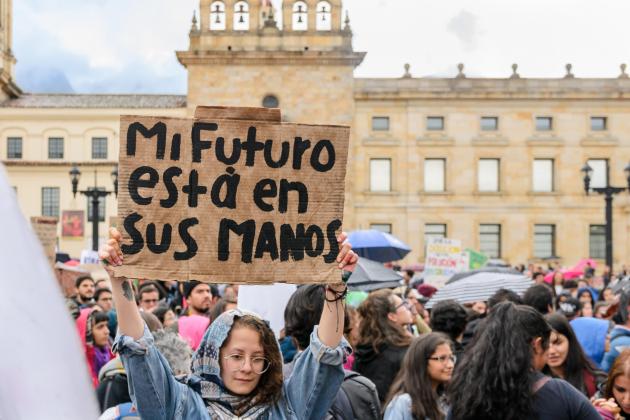NHS at 71: We need global free healthcare now

The creeping privatisation of the NHS has chipped away at the notion of a free and universal service – and dispensed with essential workers’ rights. Outsourcing essential NHS jobs has meant low wages and precarious contracts for many NHS workers, disproportionately migrants, disproportionately people of colour. Looming giant trade deals, particularly with the US, threaten to lock-in privatisation and raise medicine prices. Now, 71 years since its founding, we must protect the rights of all patients and workers if we are to defend healthcare as a universal human right: we must end border policing in hospitals, and fight for free healthcare for all – a global health service.
In 1948, the NHS was founded on two fundamental principles that are under attack now like never before: free at the point of use and universally accessible. Migrant workers have long made an essential contribution to our public services and the NHS has always depended on them to function. And yet migrants are blamed, scapegoated, for the problems the NHS faces, by our politicians and in our media.
In recent years, we’ve seen privatisation of essential NHS services on a scale never before seen, with private contractors “winning” more and more contracts, leading to outsourcing and precarious contracts for workers. The profit-driven corporations then squeeze workers’ wages – predictably, as profit is too often made on the back of exploitation. And the work most likely to be outsourced is often done by women, migrant and black workers, which means that those already marginalised are more likely to be on precarious contracts and have low pay.
While workers are fighting back, with major strikes and demonstrations by NHS workers outsourced to giants such as ISS and SERCO, the scale of the problem was driven home last year with the collapse of facilities giant Carillion. The company made billions in government contracts, managing the outsourcing of essential public services through shady Private Finance Initiative (PFI) deals, truly demonstrating the cannibalistic capitalism of neoliberalism. When this clearly faulty tower came crashing down, thousands of Carillion employees were plunged into employment uncertainty or outright unemployment.
The government’s agenda for trade deals after Brexit risks locking-in privatisation and outsourcing in the NHS. We know that under the earlier EU-US trade negotiations, TTIP, the UK chose not to securely take the NHS off the table. It pointed only to loosely worded provisions that would not protect the current NHS due to the existing elements of private funding and commercial operation. Similar post-Brexit deals could mean that if any future government sought to take more of the running of the NHS back into public hands, it could find plans blocked by trade rules. It could also be sued by transnational corporations in the corporate courts (formally known as ISDS) included in many trade deals – something that has already happened to Slovenia when it sought to reverse an unpopular privatisation of health insurance.
Under any US-UK deal, US pharmaceutical giants are likely to push for blocking the NHS’s current limited ability to negotiate and set maximum prices for medicines. Combined with a push to use trade deals to make competition from generic medicines even harder, this would push medicines prices up. The NHS would face either an increased bill or be forced to cut back access to medicines.
Perhaps the most disturbing and deadly facet of this nexus of incremental privatisation: policies and decisions introduced in 2015 and 2017 have forced doctors and nurses into acting as border guards. NHS Digital now shares data with the Home Office, leaving many patients too afraid to share their personal information, or to access care altogether, for fear of being detained and deported. And the introduction of racist upfront charges for migrants has, predictably, resulted in deaths; the policy is so dangerous that the British Medical Association called for the complete abolition of the charges.
These policies deny the basic right to healthcare for the most marginalised in the UK, for the poorest in our society. We must urgently reverse them. But it’s not enough to guarantee free healthcare for all within the borders of the UK – free and universal healthcare for everyone must be seen as both a fundamental human right and an absolute necessity for every country to deliver in the age of the dual crises of climate change and global inequality.
Already half the world’s population cannot obtain access to essential health services, the same 3.5 billion people who are forced to live in poverty and are denied the right to a dignified life. Countries in the global South now have the added burden of diverting already limited financial resources to deal with the devastating impacts of climate change, from killer floods, droughts and famines, leaving them further unable to address the structural causes of poverty and inequality.
The World Health Organisation calculates that the financial barrier to achieving universal health care by 2030 is only $112 a person. Yet the policies of the UK actively deprive governments in the global South of the much needed resources they need to achieve universal health care. From the colonial plunder of wealth and resources that enriched Britain to today’s unfair trade and development policies that have hollowed out local economies and make them work in the interests of their own citizens.
The UK undermines the efforts of poor countries’ to build a decent tax base by supporting tax havens and enabling British companies to shift profits out of those countries. It fails to regulate multi-nationals who are continuing to exploit both people and the natural resources in the global South, which coupled with illicit financial transfers from the global South to rich countries, is devastating Southern economies. Tax dodging alone is estimated to cost the global South $600 billion a year, in addition to other outflows which are estimated to cost sub-Saharan Africa close to $135.3 billion a year.
Our government’s trade policies have not only chipped away at public ownership of our own NHS, but also promoted and enforced privatisation through trade and investment agreements. Despite all this, it continues to blame the governments of poor countries for not investing enough in their healthcare systems, ignoring our own significant role in diminishing their potential health budgets.
War on Want believes in decent work and the right to healthcare for all, regardless of immigration status. Only by protecting equal social and labour rights for all workers can we stop a race to the bottom where employers drive down working conditions for everyone. The attacks on workers’ rights by the privatisation of essential healthcare services, disproportionately affecting migrant workers, must end. The hostile environment, which has already taken lives and risks many more, must be stopped.
The most fitting birthday tribute to the NHS would be a global NHS so that every citizen in the world has the right to universal and free healthcare.
